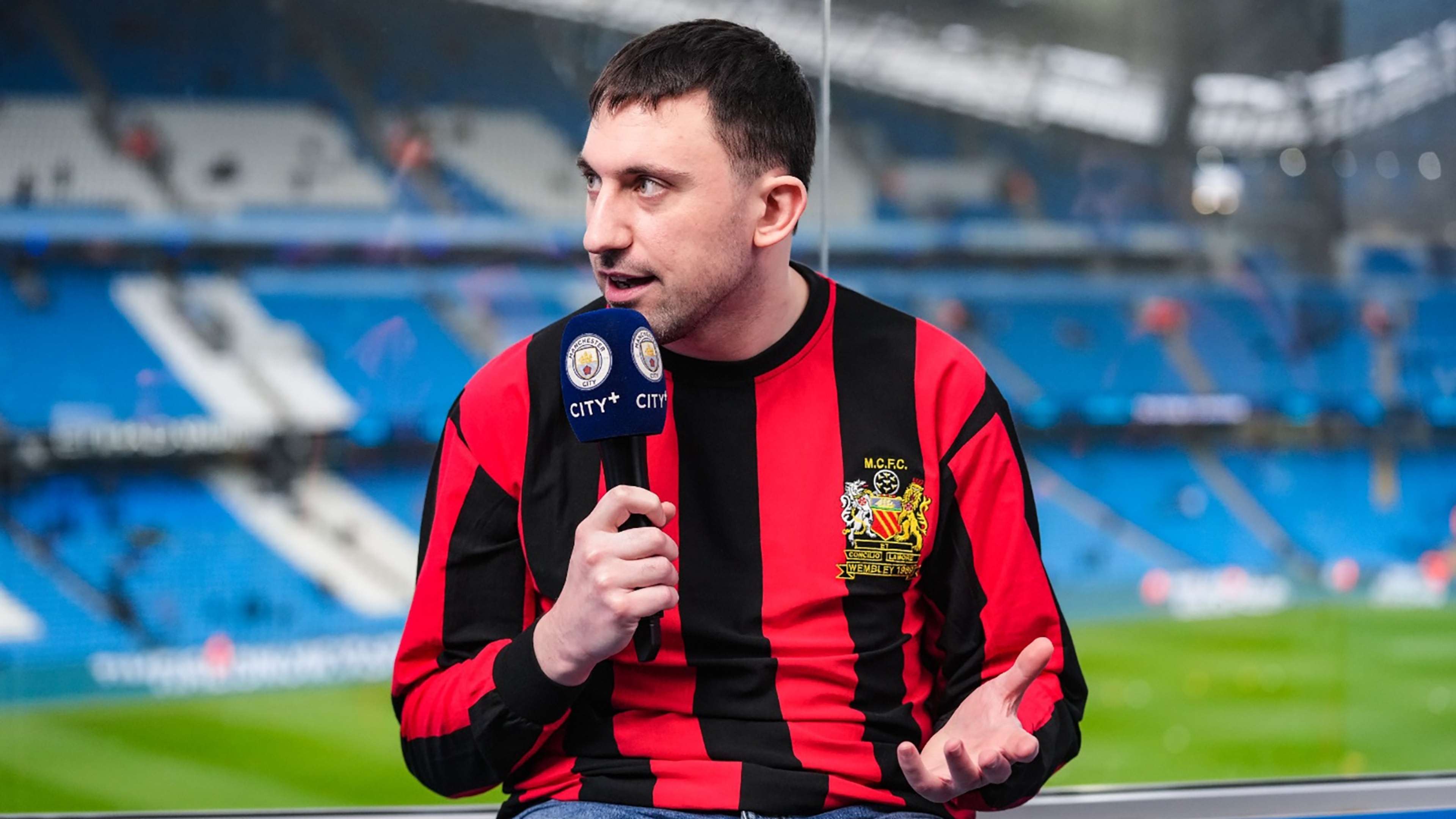Any mention of football and LGBT+ diversity on social media will almost inevitably be met with an avalanche of offensive responses.
The inability of those platforms to clamp down effectively on hate speech is a major problem in society.
'The Beautiful Game' is trying to change what can still be a hostile environment for some people with initiatives such as this month’s 'Football v Homophobia' campaign.
However, there is clearly a long way to go, given there is only one openly gay male professional playing today, Josh Cavallo – an anomaly that highlights the fear of coming out that pervades the sport.
Indeed, homophobia is also an issue in the media, where opinions and coverage from anyone other than a straight white male can sometimes be dismissed or sneered at.
“It’s not necessarily from colleagues and people around the press room, but from people watching press conferences, there can be a view that this guy doesn’t know what he’s talking about,” journalist and host of the Blue Moon Podcast David Mooney tells GOAL.
“It’s not explicitly said but it’s partly: 'Well, he’s gay, so he’s not a proper football fan.'
"Not being accepted because it’s viewed as not being your arena – that fear is always there. It’s not a debilitating fear, though, it’s not going to stop me from doing anything.”
Still, such prejudicial, ignorant views can obviously lead to some people in the industry deciding against discussing their social lives.
However, like any workplace, colleagues become friends in journalism, so it's only natural that people take an interest in one another.
“Your personal life just comes up within chats and even something as simple as 'What did you do at the weekend?', eight or so years ago when I was starting out in this trade, I might have said I went out with my mates as opposed to I went out my with boyfriend, which I will quite happily say now,” BBC commentator Mike Minay tells GOAL.
“I used to be guarded and it's the same as any LGBT+ person has when you’re on the road of coming out, you fear the reaction.
“But now if I’m asked something as simple as 'Have you got a girlfriend?', I’m happy answering "No, boyfriend", but it took a while to get comfortable saying that.
"Still, if there’s a problem now, it’s on them, not on me. Any negative reaction is on them, not on me and my progress.”
Football coverage has often come with its own shorthand, with the traditional traits of masculinity heralded as much as any moment of skill or individual quality.
Unfortunately, it can also shape the media landscape, and while Mooney's experience of working among the press pack has been largely positive, there have been situations where it's been made painfully clear that ignorant attitudes still exist.
"I've overheard comments – homophobic and transphobic comments – and there are sometimes things that you hear that will make you feel uncomfortable," he says.
"Often, it's not intentionally hostile but I feel like that the homophobic and transphobic comments were and that the person that made them was in a space where they felt they were among like-minded individuals.
"So, that's quite alarming and it can be off-putting. But the only way that changes is by allies standing up and making it known that it's not acceptable and by having more diverse press conferences and newsrooms
"That goes for all media, though. You look at the number of LGBT+ people in football media and it's growing, which is a good thing, but everyone has to work together to make it a more inclusive environment.
"I don't think it's football media that's the problem. I think society has a problem and football media is reflective of that."
There is also a worrying perception that the media is obssessed with wanting 'out' gay footballers.
Consequently, professionals remain guarded around dressing rooms and sexuality is not spoken about with the same freedom as in other walks of life.
Minay works with former footballers as co-commentators and says that they can find the openness in the media environment refreshing.
"It makes me smile because it was quite a nice reaction in a way but the first pundit I ever told I was gay said: 'Oh that's different', Minay adds.
"They'd been in this very heterosexual football world all their life and then they asked questions and it was nice. Anyone I've dropped into conversations with, I've never had a negative reaction.
"I understand that the modern day footballer is worried about what might happen but the reason I want to talk about it is I've had positive experiences.
"Realistically, I think the only thing people care about is: Can I present a good show and can I call the action on the pitch? Who I'm going home to is irrelevant and that's how it should be."
As lifelong football fans, neither Mooney or Minay have regrets about going into the industry and would tell young reporters not to be put off following their dreams if they want a career covering the game.
"Be who you are and do what you want to do," Minay says. "It's all about your ability as a journalist and being gay won't affect that."
Mooney adds: "I had thought for years it's going to be either two sides of my life that never intersect or it will be one side of life that will have to be stopped.
"Obviously, you can't change who you are, so it was probably always going to be football that changes."
Football is clearly a sport can attract a love and devotion from every sexual orientation and gender identity. Sometimes it just needs to work harder than other professions at giving that love back.


